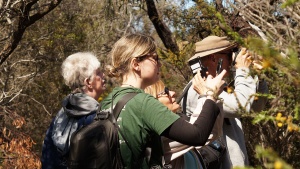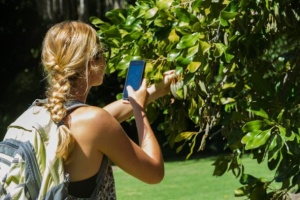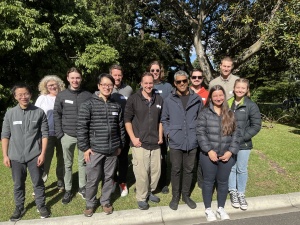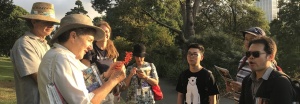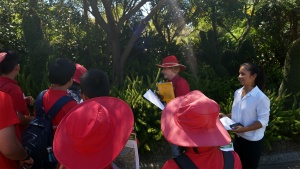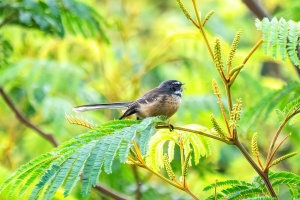Super User
How to be a good ClimateWatcher
There are a number of things that we look for when validating your observations. Here are some tips on how to be an expert ClimateWatcher.
Species
Some species are only located in particular regions of Australia. Check that you have identified the correct species by using the species profile information either on the website or in the app. Other mobile field guides available from your local museum could also help.
ClimateWatch is interested in the behaviour of a species as well as its location. Watch for species that are doing something particularly different to what you would normally see. For example, looking for nesting behaviour in the Black Swan, which generally happens during their breeding season (April to October in southern parts of Australia).
Contact us
We'd love to hear from you iff you're eager to find out more about the Climate Action work we do or would like to collaborate with us.
Email This email address is being protected from spambots. You need JavaScript enabled to view it. or give us a bell on (03) 9016 7590.
I’m recording as part of a university group, but I haven’t received my ClimateWatch invitation. What should I do?
Check your spam folder. Check with your lecturer to see what email you have registered for your class to make sure it is correct. If the correct email has been used, but you still have not received an invitation, then register using another email. Contact the ClimateWatch staff directly to let us know which email address you have registered and what university you are recording with so that we can allocate you to the correct university group.
I have forgotten my password
On the website's sign-in page, click ‘reset password.’ This generates an automatic email that will have a password reset link. Click on that link and you will be prompted to enter a new password. Passwords cannot be reset from the app at this stage
Live Sustainably
Has using the ClimateWatch program got you inspired to do more for climate change? We’ve outlined some easy ideas below of how you can get started in living more sustainably everyday, from recycling and volunteering to changing your diet and lessening your carbon footprint.
Individual
Want to get started with monitoring and recording species data for ClimateWatch but don’t know where to start? We have established trails in many botanical gardens throughout some Australian capital cities, which make it easy for you to get started! Many of these gardens offer guided walks that you can follow and record your observations. You can easily record through our ClimateWatch app, or you can download and print off a field guide and recording sheet from our website and then manually enter your data later. Our established botanic garden trails give our scientists a consistent, seasonal and reliable source of species data collection over a significant period of time.
Walking a trail is an easy way to get outside and involve your friends, family, students or colleagues in discovering your local environment while contributing to important research. Trails can be explored for short or long walks, daily or weekly or monthly, it’s up to you. Make sure you wear comfortable walking shoes, a hat and sunscreen, and have some water with you.
Australian National Botanic Garden (ANGB) - ClimateWatch trail
With previous generous funding from Friends of the Gardens, the ClimateWatch trail at the ANBG provides signage for the ClimateWatch plants found around the Gardens, as well as two ClimateWatch information signs. Trained volunteers help record observations of species and engage with visitors to the Gardens to become citizen scientists.
You can head to the ANBG trail page and download the appropriate field species guide, trail sightings and recording sheets to record your observations.
Testimonials
“It is another way that our visitors can engage with our collection of Australian native plants and contribute to valuable research in protecting our native plant species.”
ANBG General Manager, Peter Byron, 2010
Other Ways you Can Contribute
Participate in hackathon style events, solve data challenges that benefit nature
Host your own virtual "Data Validation Blitz" using the collateral below
Corporate
For more than two decades, Earthwatch has worked in partnership with the corporate sector all over the world. ClimateWatch offers employee engagement and professional development opportunities for businesses, whilst supporting scientific research into Australia’s changing climate and other crucial environmental issues.
Join companies like QBE, AMP, Jetstar, and GSA architects in our popular Scientist for a Day program. This program is a team-building and learning day for organisations around climate change, phenology and sustainable living.
Scientist for a Day Program
-
Employees participate in a guided walking tour of a Botanic Gardens nearby, accompanied by Earthwatch scientists and field staff
-
Your team is introduced to climate change and phenology, and receive training on species identification and use of the free ClimateWatch app
-
Through recorded observations, staff actively contribute to ClimateWatch’s database to help scientists understand the impacts of climate change on Australian plants and animals
Digital Volunteer Opportunities
-
Participate in hackathon style events, solve data challenges that benefit nature
-
Host your own virtual "Data Validation Blitz" using the collateral below
Become a ClimateWatch partner
There are a number of benefits to partnering with us:
-
Access to employee engagement and professional development activities such as Scientist for a Day, expeditions and sustainability leadership programs
-
Networking opportunities with other companies, nongovernmental organisations, scientists, and environmental stakeholders
-
Direct support of scientific research focusing on understanding, predicting and mitigating the effects of climate change on Australia’s biodiversity
Contact This email address is being protected from spambots. You need JavaScript enabled to view it. if your business is interested in partnering, volunteering or participating in the Scientist for a Day Program.
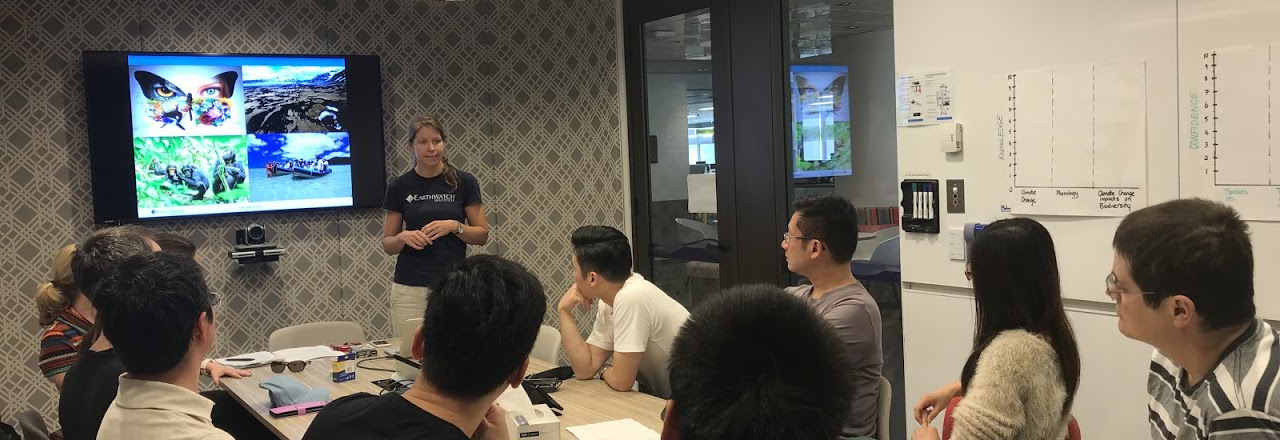
Universities
ClimateWatch provides real-world learning opportunities for university students, from data collection out in the field to data analysis and interpretation back in the classroom. By actually making science, not just reading about it, students are engaged and motivated to learn, and feel like they’re making a difference by contributing to Australia’s climate change response.
Tertiary education institutions across the country have been integrating ClimateWatch into their courses and seven Australian universities now have a ClimateWatch trail located on campus. The trails have been developed in collaboration with university teaching staff, grounds staff and local conservation groups who helped select key locations and shortlist ClimateWatch indicator species.
Through delivery partnerships with Australian universities, ClimateWatch is engaging the next generation of scientists, science communicators and computer scientists in projects that make a difference and build Australia’s citizen science capacity. The success of ClimateWatch delivery partnerships relies on creating value for the partner. For example ClimateWatch can involve students from fields as diverse as biology, science communication and computer science through activities like data collection and analysis by science students, representing results can involve software development projects for computer science students and sharing results with non-experts can provide projects for students in science communication.
Digital Volunteer Opportunities
- Participate in hackathon style events, solve data challenges that benefit nature
- Host your own virtual "Data Validation Blitz" using ClimateWatch's community validation feature and the collateral below
Helpful Resources
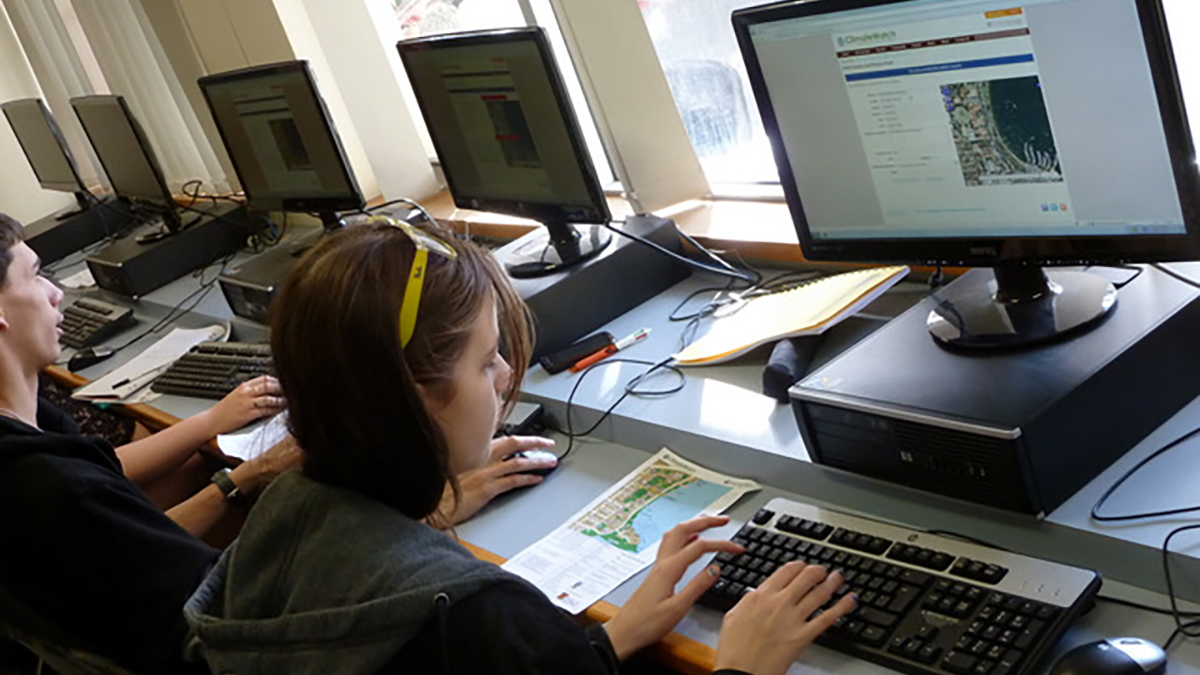
Case Study | University of Western Australia (UWA)
As part of their course, first-year biology students utilise ClimateWatch records on a chosen species to formulate a hypothesis as to why that species might show different phenophases over time. They are required to submit their own observations, made easy through the dedicated ClimateWatch trail on campus.
Students learn the complete process of scientific research in a fun and engaging way, with research showing the majority planned to continue recording data for ClimateWatch after the project was finished. A large proportion (35 percent) also introduced the application to their friends, demonstrating the important role ClimateWatch has in environmental engagement.
ClimateWatch has been integrating into the biology courses at UWA to help open the eyes of students to what plants and animals are doing at different times of the year, and to demonstrate how this information could be used to better understand the effects of climate change on our biota. It is also contributing to building datasets in Western Australia and first year university students are perfectly positioned to make an important contribution.
This program provides a great opportunity that early year students don't often get to do something that contributes to genuine research. The focus on indicator species introduces students to data gathering with common species such as Willie Wagtails that are frequently seen. Students can practise their observation skills and increase their understanding of animal behaviour in a cumulative fashion. The more they observe, the more they learn, and the more they want to understand about individual species and the impacts that climate change may be having on them.
Schools
ClimateWatch is an authentic learning experience that can be incorporated into primary, secondary and tertiary school subjects, backyard or school ground explorations, field excursions or camps. Taking part in citizen science that monitors and records plant and animal behaviour is naturally aligned to the Science stream of the Australian curriculum. ClimateWatch is also a great way to build student capacity in critical and creative thinking, numeracy and ITC skills.
What is Phenology
Phenology is the study of periodic plant and animal life cycle events and how these are influenced by seasonal and interannual variations in climate. Examples include bird nesting, insect hatching, plant flowering and fruit ripening. Many studies have already provided insight into the relationship between climate variables, such as temperature and rainfall, to the timing of these phenophases.
Climate change is affecting rainfall and temperature across Australia, and is consequently triggering changes in established flowering times, breeding cycles and migration movements and other phenological changes of our flora and fauna.
Monitoring phenology is important as changes can impact entire biological communities, our food sources and our health. Unfortunately. few significant datasets have been collected and researched in Australia and the Southern Hemisphere. That's where ClimateWatch comes in and enables everyone to contribute to critical climate change research.

